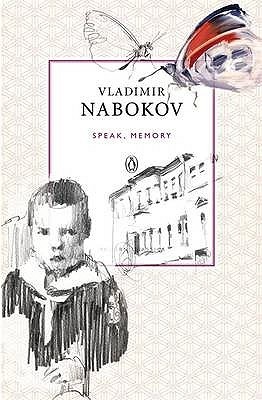
Speak, Memory Summary of Vladimir Nabokov's Book

Speak, Memory by Vladimir Nabokov: A Masterful Autobiography
Vladimir Nabokov's autobiographical masterpiece, Speak, Memory, takes readers on a captivating journey through the life and mind of the renowned author. Originally published in 1951 as Conclusive Evidence and later revised in 1966, this memoir offers a deep exploration of Nabokov's personal experiences, creative process, and literary achievements. Dive into the world of one of the 20th century's greatest writers as he reflects on his upbringing, travels, and artistic endeavors.
Characters
Vladimir Nabokov: The central figure of Speak, Memory, Nabokov is a complex and enigmatic character who invites readers into his inner world. As the author of beloved works such as Lolita and Pnin, Nabokov's keen intellect and creative prowess shine through in his memoir. Through his meticulous recollections and vivid prose, he unveils the nuances of his life and art, offering readers a glimpse into his unique perspective.
Detailed Summary
Speak, Memory is a poignant and introspective narrative that traces Nabokov's life from his childhood in St. Petersburg to his later years in the United States. The memoir delves into the author's formative years, his family dynamics, and the impact of historical events on his upbringing. Through a series of vivid anecdotes and reflections, Nabokov paints a vivid portrait of his past, weaving together personal memories and artistic insights.
The memoir also provides a window into Nabokov's creative process, offering valuable glimpses into the genesis of his literary works. From his early experiments in writing to the publication of his most famous novels, Nabokov shares the joys and challenges of being a writer. Each chapter of Speak, Memory is a testament to the power of memory and imagination, as Nabokov skillfully crafts a narrative that is both intimate and universal.
Extensive Analysis
At its core, Speak, Memory is a meditation on the nature of memory itself. Nabokov's meticulous attention to detail and his masterful storytelling evoke a sense of nostalgia and longing, as he grapples with the passage of time and the fleeting nature of human experience. Through layered prose and lyrical language, he invites readers to contemplate the ties that bind us to the past and the ways in which we construct our own identities through memory.
The memoir also serves as a reflection on the art of writing and the role of the author in shaping narratives. Nabokov's self-awareness and introspection lend a metafictional quality to the text, blurring the lines between autobiography and fiction. As he navigates the complexities of memory and storytelling, he challenges readers to consider the ways in which we reconstruct our own life stories and the stories of others.
Final thoughts
To conclude, Speak, Memory stands as a testament to Vladimir Nabokov's literary genius and personal depth. Through its rich tapestry of memories, reflections, and insights, the memoir offers a compelling glimpse into the mind of one of the 20th century's most celebrated writers. Whether you are a fan of Nabokov's work or simply appreciate a beautifully crafted narrative, Speak, Memory is a must-read for anyone interested in the power of memory and storytelling.
If you enjoyed this summary, we encourage you to explore the complete book for a more immersive experience. Alternatively, consider listening to the audiobook version for a dynamic and engaging interpretation of Nabokov's life and work. Happy reading!






Related Books